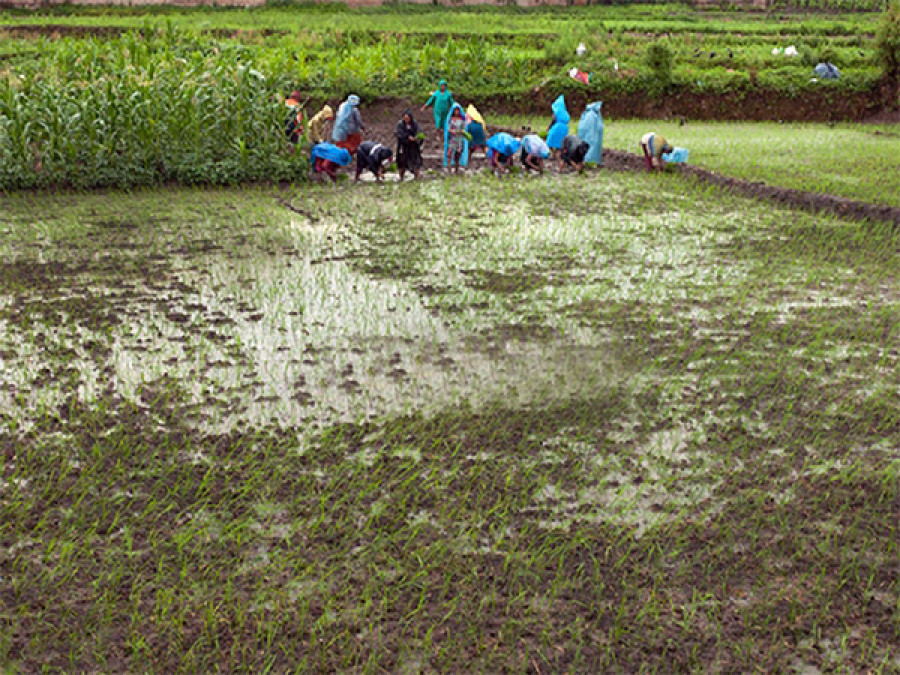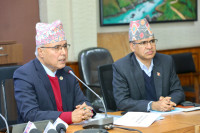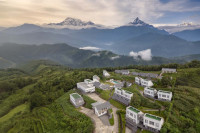Money
Paddy fields lie barren due to lack of water
More than 80 percent of the paddy fields in Mahottari district remain to be planted even with the rainy month of July coming to a close, the District Agriculture Development Office said
Dilli Ram Khatiwada & Rabindra Upreti
Out of the 562,050 bighas of land in the district, around 45,000 bighas lie barren due to poor rainfall in the region. According to the DADO, farmers in the region have planted paddy on 11,250 bighas of land utilizing water drawn from river banks and underground water. With inadequate water preventing farmers from planting crops on their fields, they are starting to leave their villages in search of opportunities elsewhere. Mohan Jha, a youth from Damhi Makaida, has started making the rounds of Jaleshwar looking for work.
“All our fields have turned into pasture land, and we don’t see rainfall coming,” Jha said. “I have come to Jaleshwar in search of employment opportunities. Most of my friends have left the village looking for jobs.”
Lalpari Devi of Dhabauli Musahar said they might starve in the months to come if the dry spell continued. “I had collected 20 maunds of rice by engaging in farming during the last season. I have nothing this time as there is no rain. How do I feed my kids?” she said.
The condition of farmers of Udaypur is similar. Manab Bahadur Raut of Beltarbasaha is worried about his survival faced with a shortage of food. Since he has stocks which will last for just a couple of months, Raut is worried about what to eat once they are finished.
Similarly, Ram Bahadur Magar of Dumre and Ram Kumar Chaudhary of Sundarpur do not know if they will have enough food to feed their families. Since most of the farmers depend on rainwater to plant their crops, they see trouble ahead.
There are 35,035 hectares of cultivable land in Udaypur. However, only 6,351 hectares have access to round-the-year irrigation while 9,149 hectares are dependent on the monsoon and the remaining 9,300 hectares do not have access to irrigation.
Bishnu Khatiwada, operator of Rautahat Agriculture Firm, said delays in the construction of new irrigation projects and partial operation of the existing systems had become the main problem for farmers. “Even though farmers have cultivatable land, lack of adequate water has affected planting,” Khatiwada said, adding that farmers were being forced to leave Nepal for foreign employment as they have to feed their families anyhow.




 9.12°C Kathmandu
9.12°C Kathmandu















